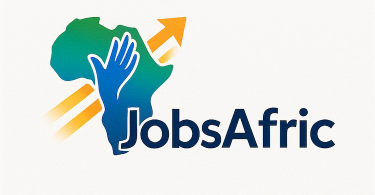The post pandemic era has reshaped the hiring landscape, with technological advancements and shifting worker expectations driving unprecedented change. For small businesses, staying competitive means adapting to these evolving trends. By 2025, the convergence of remote work, artificial intelligence (AI), and skills based hiring will redefine recruitment strategies. This article explores the top three hiring trends small businesses must embrace to attract top talent, streamline operations, and thrive in a dynamic market.
1. The Hybrid Work Revolution Becomes the Norm
Why It’s Critical in 2025
Hybrid and remote work models, accelerated by the pandemic, are no longer temporary fixes but permanent fixtures. A 2023 Gartner report predicts that by 2025, 60% of knowledge workers will operate in hybrid environments, with 30% fully remote. For small businesses, this shift offers access to a global talent pool but demands strategic adjustments to policies, tools, and culture.
Key Developments
-
Global Talent Access: Small businesses can now hire specialized professionals from regions with lower labor costs or niche expertise. Platforms like Deel and Remote.com simplify international payroll and compliance.
-
Flexibility as a Standard: Employees prioritize flexibility, with 72% of workers citing it as a top factor in job decisions (McKinsey, 2023). Companies offering rigid onsite policies risk losing talent to competitors.
-
Collaboration Tools Evolution: Advanced tools like VR meeting spaces (e.g., Meta’s Horizon Workrooms) and AI driven project management software (e.g., Asana’s “Smart Calendar”) will bridge communication gaps in distributed teams.
Challenges for Small Businesses
-
Cultural Cohesion: Building camaraderie without face to face interaction requires intentional efforts, such as virtual team building activities and regular check ins.
-
Legal Complexities: Hiring across borders introduces tax, labor law, and data privacy challenges. Partnering with Employer of Record (EOR) services can mitigate risks.
-
Productivity Metrics: Transitioning from hours worked to outcome based evaluations ensures accountability. Tools like Time Doctor or Toggl Track can monitor productivity without micromanaging.
Actionable Strategies
-
Adopt a “remote first” policy with optional office days for collaboration.
-
Invest in cybersecurity to protect distributed networks.
-
Use asynchronous communication (e.g., Loom videos) to respect time zones.
2. AI Powered Hiring Tools Level the Playing Field
The Rise of AI in Recruitment
By 2025, the AI recruitment market is projected to reach $1.3 billion (Grand View Research), democratizing access to tools once reserved for large corporations. Small businesses can leverage AI to automate repetitive tasks, reduce bias, and identify high potential candidates efficiently.
Transformative Applications
-
Resume Screening: AI platforms like HireVue and Pymetrics analyze resumes and predict candidate fit using natural language processing (NLP).
-
Chatbot Interviews: Tools like Mya and Paradox conduct initial screenings, answering FAQs and scheduling interviews, saving HR teams 10–15 hours weekly.
-
Bias Mitigation: AI can flag gendered language in job postings or anonymize applications, though human oversight remains crucial to avoid algorithmic bias.
Ethical Considerations
-
Transparency: Candidates deserve clarity on how AI evaluates them. For example, Unilever’s AI hiring process includes sharing assessment criteria upfront.
-
Data Privacy: Compliance with regulations like GDPR and CCPA is non negotiable when handling candidate data.
Small Business Advantages
-
Cost Efficiency: Affordable SaaS models (e.g., Zoho Recruit) offer pay as you go pricing.
-
Faster Hiring Cycles: AI reduces time to hire by 50%, critical for roles requiring immediate onboarding.
Best Practices
-
Combine AI insights with human intuition for final decisions.
-
Regularly audit AI tools for fairness using third party services like FairNow.
-
Train HR teams to interpret AI analytics effectively.
3. Skills Based Hiring Takes Center Stage
Moving Beyond Degrees
The traditional emphasis on degrees is fading. LinkedIn’s 2023 Workplace Report reveals that 45% of employers now prioritize skills over credentials, a trend set to dominate by 2025. For small businesses, this shift unlocks access to diverse talent pools, including career changers and self taught professionals.
Drivers of Change
-
Rapid Skill Obsolescence: With 50% of employees needing reskilling by 2025 (World Economic Forum), static job requirements are obsolete.
-
Micro Credentials: Platforms like Coursera and Udacity offer nano degrees in emerging fields like AI and blockchain, enabling candidates to showcase niche expertise.
Implementation Strategies
-
Skills Assessments: Use tools like HackerRank (for tech roles) or Vervoe (for soft skills) to evaluate competencies.
-
Internal Mobility: Promote upskilling via platforms like LinkedIn Learning, reducing turnover costs.
-
Partnerships: Collaborate with coding bootcamps (e.g., General Assembly) to create talent pipelines.
Case Study: Tech Startup “Nimbly”
This 50 person company eliminated degree requirements for developer roles, instead using coding challenges and portfolio reviews. Result? A 30% increase in qualified applicants and a 20% faster hiring process.
Challenges
-
Verifying Skills: Combat credential fraud with verified badges (e.g., Credly).
-
Balancing Experience and Potential: Structured interviews and probation periods help assess cultural fit.
By 2025, small businesses that embrace hybrid work models, ethical AI recruitment, and skills based hiring will outpace competitors. These trends offer opportunities to reduce costs, enhance diversity, and build agile teams. To succeed, small businesses must:
-
Invest in remote infrastructure and flexible policies.
-
Integrate AI tools while maintaining human centric values.
-
Prioritize skills and potential over traditional credentials.
The future of hiring is dynamic, but with strategic adaptation, small businesses can turn challenges into unparalleled growth opportunities.





Leave a Comment